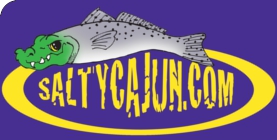


 |

|

|
|
|||||||
| Inshore Saltwater Fishing Discussion Discuss inshore fishing, tackle, and tactics here! |
 |
|
|
Thread Tools | Display Modes |
|
|
|
#1
|
||||
|
||||
|
Quote:
A Constitutional Republic is based on the idea that the liberty of individuals should only be restricted in cases of demonstrated necessity. The position that tighter limits are always good conservation is not only bad science, it is contrary to the ideas of liberty that the framers of our Constitution sought to preserve. Copying other states is rarely sound science based wildlife management. Asserting the sexual maturity of a fish as the basis for a minimum length limit is not scientific management. For example, it has been shown and is well known that the sexual maturity of redfish is actually a good cause to restrict harvest of sexually mature fish. Restrictions on liberty (tighter limits) that carry criminal penalties should be supported with good science, including stock assessments, condition indices, and understanding the role of the species in the overall food web. The debacle with red snapper is actually endangering other species because the Draconian restrictions on red snapper are allowing them to become overpopulated in some areas to the detriment of their food sources and to the harm of other species that red snapper compete with for food and habitat. Overly restrictive harvest limits is not good conservation. Good conservation allows sustainable harvests to prevent overpopulation for the benefit of the overall habitat and food web. You need more than anecdotal evidence that a given species is being targeted to justify making current practices a crime. You need valid scientific data showing that current harvest levels are not sustainable. This requirement has two components: 1. You need to accurately determine what current harvest levels actually are. 2. You need to accurately assess current population levels and food web dynamics to show that the current harvest levels are not sustainable and would lead to a long term decline in the resource. |
|
#2
|
||||
|
||||
|
Quote:
I read that and responded also, maybe in the other thread In that response I said that all that makes sense in a perfect world, but wildlife managers do not live in a perfect world and the world is always changing and adpatations have to be made |
|
#3
|
||||
|
||||
|
Quote:
This is all you can say??
__________________
Waltrip's Saltwater Guide Service jeremy@geaux-outdoors.com https://m.facebook.com/waltrip.guideservice?id=148838538646862&_rdr |
|
#4
|
||||
|
||||
|
Quote:
|
|
#5
|
||||
|
||||
|
You even said it when you were talking about tuna "Yellowfin tuna stocks had to be assessed..."
|
|
#6
|
||||
|
||||
|
Quote:
Again, there are NO LIMITS on tripletail right now in Louisiana |
|
#7
|
||||
|
||||
|
Quote:
If there is no scientific data supporting the necessity of infringements on Constitutional liberties, then why should the executive branch be empowered to act unilaterally to make certain harvest actions into criminal offenses? To be sure, the legislative branch does not need sound science to support its laws, it is empowered by the Constitution to make stupid laws if it desires. But the legislative branch has given certain regulatory authority to the executive branch (LDWF) but only to enact scientifically sound and necessary restrictions on the Constitutional liberties of Louisiana citizens. LDWF making new regulations because LDWF scientists opine they are a good idea is a failure of separation of powers and a bad approach to wildlife managers. There needs to be scientific data that can be reviewed, assessed, and commented on by independent experts and stakeholders. Making new regulations with criminal penalties without sound science is failure of due process. |
 |
| Bookmarks |
| Thread Tools | |
| Display Modes | |
|
|
